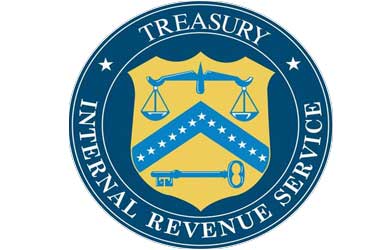We retired Tax Justice Blog in April 2017. For new content on issues related to tax justice, go to www.justtaxesblog.org
 Some House Republicans are hitting the IRS when it’s down, using recent scandals (such as they are, anyway) to push through a dramatic 25 percent cut to the IRS budget. Such a devastating cut would not only substantially increase the deficit, but would make the IRS less effective and exacerbate the myriad of problems it already faces, most of which are due to inadequate resources.
Some House Republicans are hitting the IRS when it’s down, using recent scandals (such as they are, anyway) to push through a dramatic 25 percent cut to the IRS budget. Such a devastating cut would not only substantially increase the deficit, but would make the IRS less effective and exacerbate the myriad of problems it already faces, most of which are due to inadequate resources.
Even as its responsibilities have grown dramatically over the past decade, the IRS has continued to get too few resources to do its job, with its budget actually declining 17 percent since 2002 (adjusted for inflation and population). The results of these cuts have not been pretty. Nina Olsen, the National Taxpayer Advocate, noted (PDF) recently that Americans need to “wake up to the consequences of shrinking the IRS budget” and pointed to the fact that the budget cuts had the effect of “virtually eliminating funding for training, reducing taxpayer service to laughable levels (if it weren’t so sad), and undertaking enforcement actions before any meaningful attempt to communicate with taxpayers.”
Also, cutting the IRS’s budget would actually increase the deficit and cost taxpayers more money than it would save. The primary reason – which is pretty obvious when you think about it – is that every dollar the IRS spends on activities like audits, liens, and seizing property brings in more than $10 in revenue. In addition, the IRS is currently making substantial long term investments in its enforcement, modernization and management systems, for which the federal government (i.e., us taxpayers) receives a $200 return for every dollar invested.
Some more hard-core anti-tax conservatives are going beyond the 25 percent cut, like Senators Rand Paul and Tex Cruz, and are calling for abolishing the IRS entirely, accompanied by enactment of a flat tax or some type of national consumption tax. While the mechanics of collecting these taxes without an agency resembling the IRS at the state or national level remain murky, it is clear that such proposals would have the effect of substantially increasing taxes on the poor and middle classes, while at the same time providing massive tax cuts to the wealthiest individuals.
Whatever gripes people may have about the IRS, the reality is that cutting its budget further will only make things worse. The best move for everyone (except maybe tax cheats) would be for lawmakers to significantly increase the IRS’s budget going forward, so that it can do its job better – including collecting more revenue.